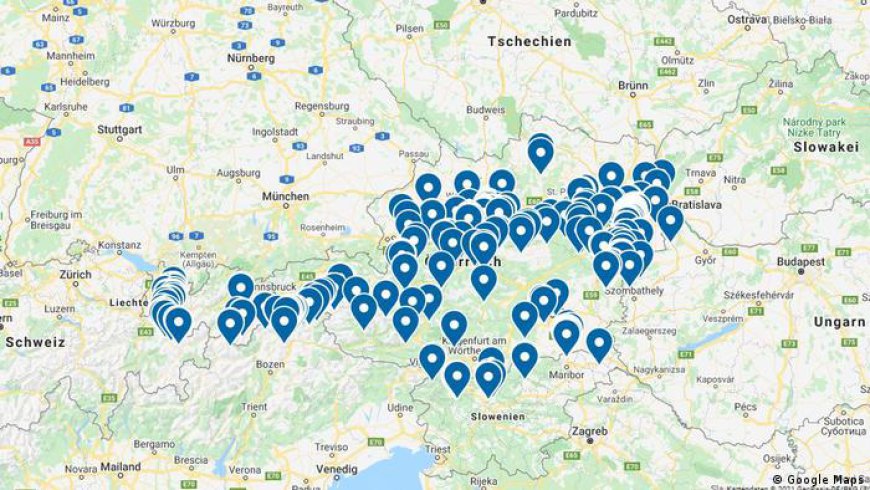Austrian 'Islam Map' Sparks Controversy: German Muslim Council Condemns Move
In a recent development, the Austrian government's launch of a controversial 'Islam map' has drawn severe condemnation from the German Central Council of Muslims. This blog post delves into the criticisms, concerns, and reactions surrounding this divisive move, shedding light on the broader implications for democracy and European society.

In a recent turn of events, the Austrian government's introduction of a controversial 'Islam map' has sent shockwaves across Europe, with the German Central Council of Muslims strongly criticizing the move. This blog post will delve into the details surrounding this contentious development, exploring the criticisms, concerns, and reactions, and shedding light on the broader implications for democracy and European society.
Understanding the 'Islam Map' Controversy
What is the 'Islam Map'? The 'Islam Map' is an online platform launched by the Austrian Integration Minister, Susanne Raab, which features the names and locations of over 620 mosques, associations, officials, and potential foreign connections. While it might seem like a straightforward informational resource, the controversy lies in its perceived implications.
The German Muslim Council's Critique Aiman Mazyek, the head of the German Central Council of Muslims, has labeled this initiative as "irresponsible." He raises concerns that it could inadvertently empower anti-Muslim racists and religious extremists, all while casting a cloud of suspicion over millions of innocent Muslims.
Government's Stance and Counterarguments
Addressing Political Islam Integration Minister Susanne Raab has defended the 'Islam Map,' asserting that it is not meant to cast a generalized suspicion on Muslims. Instead, it aims to address the growing concerns related to political Islam and its potential role as a breeding ground for extremism.
Growing Islamophobia The release of addresses and other details on the 'Islam Map' has stirred fear within the Muslim community. With a backdrop of increasing Islamophobia in Austria, especially following a deadly terror attack in Vienna, the concerns about stigmatization and threats to security are palpable.
Academic Perspective and Warnings
Expert Opinions Prominent Austrian political scientist, Prof. Heinz Gaertner, warns that this 'Islam Map' could be seen as discriminatory against Muslims. He goes further to express concerns about potential "vigilante justice" against Muslims in Austria. He points out that such public labeling of specific groups has historically led to humiliation and even persecution.
Germany's Response
Support from Germany Interestingly, the co-ruling Christian Democratic Union (CDU) party in Germany, led by Chancellor Angela Merkel, has expressed support for the Austrian government's initiative. They believe it's time to engage in a serious discussion on how to tackle Islamist extremism within Germany. The Austrian 'Islam Map' serves as a catalyst for this necessary conversation.
Conclusion: A Controversy Yet to Settle In conclusion, the launch of the Austrian 'Islam Map' has ignited a firestorm of controversy, drawing criticism and praise alike. While the Austrian government stands by its intentions, concerns about discrimination and potential repercussions for the Muslim community continue to loom large. The debate surrounding this issue is far from settled, and its consequences remain to be seen. This controversy has the potential to reshape the discourse on democracy and societal values in Europe, making it an issue to watch closely in the coming days.







